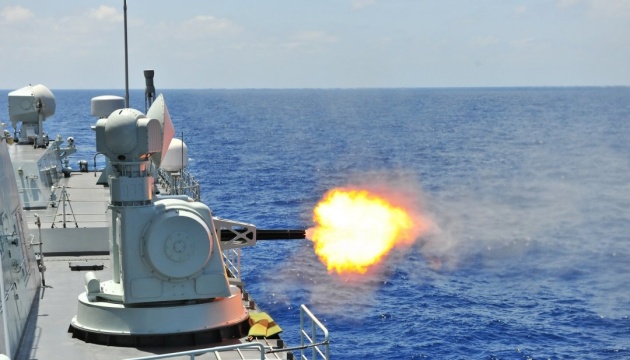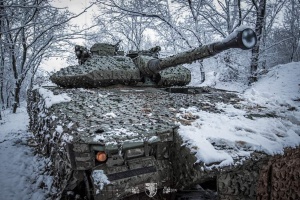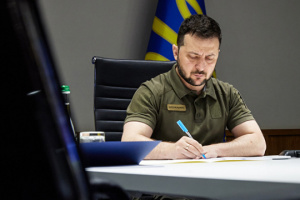
Russian warships in Black Sea suggest Moscow could be preparing missile strikes - Ukraine Army spox
Natalia Humeniuk, the head of the joint press center of Operational Command South, reported this on the air of a nationwide telethon, an Ukrinform correspondent reports.
"The operational situation is quite stable at the moment, but this should not be reassuring to us because we remember: the hybrid war is ongoing, and this includes destabilization of the media space. Also, hostilities continue – this is directly about the development of hostilities on the front line. And, once again, the presence of a naval group in the Black Sea means that aerial reconnaissance, gathering of data on the situation, and preparing for possible missile strikes are ongoing. Because the enemy missile carriers are equipped, prepared, and the fact that they occasionally enter the base points can speak of a response to the weather, because the storm situation is quite changeable," Humeniuk said.
She noted that ships can move to combat readiness in two to three hours, so one should be ready and evaluate such actions in conjunction with the activity of enemy aircraft.
Humeniuk also did not rule out that the announcement of missile fire is likely to be aimed at further inciting the psychological pressure on the population, but the actual preparation for mass missile attacks is likely, so people should be ready.
The OC spokeswoman also noted that not only the threats from enemy aircraft and from the sea, but also the enemy's ground weapons are intensifying.
"We honestly and openly report how many missiles a carrier has, we say that we need to be ready for a massive missile attack because this is one of the means of exhausting our air defenses," Humeniuk said.
She also confirmed that the invaders are currently not using Iranian drones, opting for Russian-made Lancets. According to Humeniuk, this may indicate both that they have run out of stocks or that tactics have changed, and their use is also influenced by weather conditions. Currently, the nuances of maneuvers according to weather conditions are being studied.
In addition, Humeniuk noted, the absence of Iranian-made drones may be related, in particular, to the incident with Iranian instructors training Russian operators.
As reported, the Minister of Foreign Affairs of the Islamic Republic of Iran, Hossein Amir Abdollahiyan, stated that Iran had supplied drones to Russia, but did so before the start of the Russian invasion of Ukraine.




